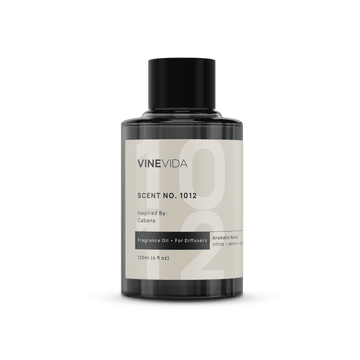Because essential oils come from nature, it means that by nature they are unpredictable! Depending on the weather, the region, and many other factors, one batch of essential oils may be different from the next. This is true even from the same supplier! This means a bit of a trade-off when it comes to soap making, as there is no guarantee that one batch of soap will smell the same as the next. The benefit, of course, is that the consumer knows that the soap is made using natural fragrance. When it comes to fragrance, not all oils are equal to others, so in this article, we will take a look at the best essential oils for soap making!
How does the process of soap making affect essential oils?
Some essential oils actually contain properties that interact during the process of saponification. Saponification is the chemical transition in which fats and oils convert into soap and alcohol (glycerine). Certain oils react with the base ingredients in soap, thus changing their properties and their aromas. While there is a lack of research on the topic, the general consensus is that most oils still retain their benefits when being incorporated into soaps. These are the best essential oils for soap making!
Best Essential Oils for Soap Making: Top Notes
1. Lemongrass Essential Oil
Let’s face it—we all love the scent of citrus! When it comes to soap making though, particularly cold process soap making, citrus has a tendency to not show up to the party. Citrus oils are top notes, which means they are the first scent you smell but dissipate quickly. Lemongrass, however, gives a much stronger, longer-lasting aroma, making it the perfect choice for citrus soaps.
2. Bergamot Essential Oil
Bergamot is a probable hybrid, likely a combination of lemon and bitter orange. It is what gives Earl Grey its trademark flavor, making it a favorite of many! When it comes to soap making, bergamot’s spicy, floral aroma brings a unique twist to a blend. Preliminary studies indicate it may be beneficial in terms of both collagen production and treating inflammatory skin conditions, though more research is necessary. All of these qualities make bergamot one of the best essential oils for soap making!
3. Peppermint Essential Oil
Peppermint essential oil contains menthol, which means soaps that contain peppermint offer a distinct cooling sensation. When it comes to soaps this means that the addition of peppermint offers up a tingly, zesty sensation that basically shouts out so fresh and so clean. Plus, the scent of peppermint is known to help relieve sinus ailments, so having a peppermint soap in your shower during sniffle season might be just the fix.
Best Essential Oils for Soap Making: Heart Notes
4. Lavender Essential Oil
Out of all the essential oils out there, lavender is definitely one of, if not the most popular. There are plenty of different varieties, varying from region to region. One of the most popular versions of lavender essential oil for soap making is 40/42 lavender. Lavender 40/42 is different from other lavender blends as it is specifically formulated to smell the same every time. This means soap makers can depend on consistent results with every batch.
5. Rosemary Essential Oil
Similar to lavender, there are many different varieties of rosemary oil. While all versions of rosemary have that fresh, woodsy profile we all know and love, each of the varieties tends to lean towards either a more herbaceous or a more camphor-like fragrance. Rosemary can also add a bit of flair to artisan soaps and can be incorporated into the mixture as either decor or as an exfoliant.
6. Rose Geranium Essential Oil
A favorite with perfume makers rose geranium oil offers a sweet, floral aroma to artisan soaps. Unlike pure rose oil, geranium boasts a vibrant hint of herbaceous citrus, giving it an extra little kick. As a middle note, geranium can help balance out the fragrances that go into a soap. It also acts to keep the soap smelling fragrant for longer.
Best Essential Oils for Soap Making: Base Notes
7. Ylang Ylang Essential Oil
Ylang ylang essential oil boasts a rich, intoxicating aroma that brings to mind the tropical shores of Madagascar. In many Asian countries, the scent of ylang-ylang is even thought to be an aphrodisiac! Try using this sweet, fragrant oil as your fragrance foundation to lift your mood and put a little pep in your step.
8. Cedarwood Essential Oil
The aroma of cedarwood is warm and woody and varies from sweet to a more dry, smoky fragrance. It can provide the perfect base note for soaps, especially as it isn’t overly feminine. In soap making cedarwood is commonly referred to as a “fix” oil, as it can help the fragrance of a soap linger for longer.
9. Jasmine Grandiflorum Oil
While more expensive than other oils, jasmine oil can bring a rich, seductive fragrance to luxury artisan soaps. To produce only a single gram of jasmine oil it can take up to 8000 flowers. However, absolute oils are much stronger than essential oils, offering an intoxicating and fit-for-royalty aroma.
Conclusion
Essential oil soap making is becoming increasingly popular for both craft makers and consumers. Today, people want to know what is in the products they are using, and know that they are natural and non-toxic. At VINEVIDA we aim to provide all of our artisan soap makers with the best essential oils for soap making. We sell oils of the highest quality, while still keeping them affordable. Leave a comment below with your favorite essential oils for soap making, and how you get the best use out of them!
























1 comment